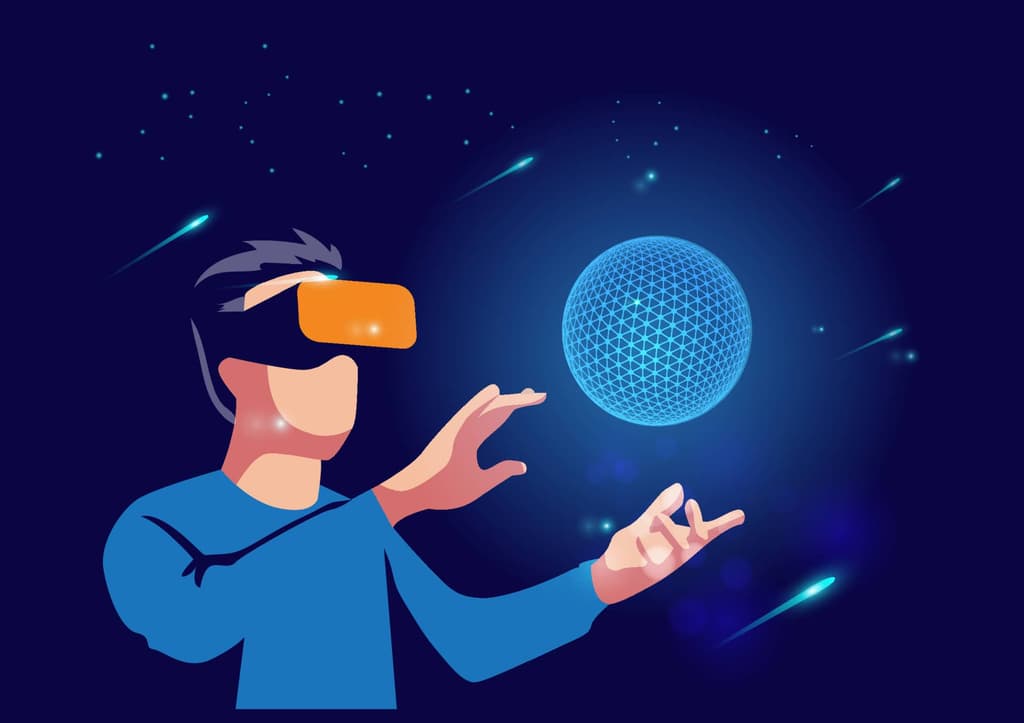Luxury in the Metaverse: A New Dimension for High-End Brands

The metaverse is rapidly becoming a pivotal arena for luxury brands, marking a transformative shift in how high-end products and experiences are presented to consumers. Picture it as a new frontier, a virtual landscape where luxury brands like Gucci, Balenciaga, and Louis Vuitton are pioneering a future in which the digital and physical worlds seamlessly blend. This evolution is not just about creating digital collections; it's about reimagining what luxury means in a world that's increasingly online.
With the advent of the metaverse, these brands are venturing into new, immersive experiences that cater to a tech-savvy audience. This shift presents unique opportunities for premium brands to break into a new dimension, capture fresh markets, and stay ahead of the competition. Let’s dive into this exciting evolution and explore what the future holds for luxury in the metaverse.
Table of Contents
- Introduction
- What is the Metaverse?
- Why Luxury Brands are Entering the Metaverse
- Breaking into a New Dimension of Luxury
- Exclusive Digital Collections
- Immersive Brand Experiences
- Examples of Luxury Brands in the Metaverse
- The Appeal for a Tech-Savvy Audience
- Challenges and Considerations for Brands
- Future Trends in Luxury and the Metaverse
- How High-End Brands Can Start
- Staying Ahead of Competition
- Impact on Customer Relationships
- Ethical and Environmental Considerations
- Conclusion
- FAQs
1. Introduction
The fusion of luxury and the metaverse is redefining how high-end products and experiences are offered. As technology continues to blur the boundaries between the digital and physical worlds, luxury brands are strategically positioning themselves in this new, virtual frontier.
2. What is the Metaverse?
The metaverse is a vast, interconnected network of virtual spaces where users can interact with digital environments, goods, and each other. It’s an all-encompassing digital universe, accessed through VR headsets, augmented reality, and traditional screens. Within this space, luxury brands find themselves with new opportunities to connect with consumers.
3. Why Luxury Brands are Entering the Metaverse
The metaverse allows luxury brands to:
- Reach New Markets: By creating digital counterparts of their products, brands can reach younger, tech-savvy consumers.
- Enhance Brand Loyalty: Through unique, personalized experiences, brands can foster deeper connections with their audience.
- Boost Innovation: The metaverse encourages brands to innovate by creating products and experiences only possible in a digital realm.
4. Breaking into a New Dimension of Luxury
The metaverse represents a new dimension of luxury. Here, items are no longer confined by physical boundaries, and the potential for customization is limitless.
5. Exclusive Digital Collections
Luxury brands are offering digital collections as exclusive and rare as their physical counterparts. Gucci, for instance, introduced a virtual collection that users can try on in digital spaces or use as avatars. These items, while intangible, carry the same prestige and allure as physical luxury goods.
6. Immersive Brand Experiences
In the metaverse, luxury brands can create entire experiences that are immersive and interactive.
7. Examples of Luxury Brands in the Metaverse
- Gucci: Launched a series of digital wearables for Roblox, capturing the attention of younger audiences.
- Balenciaga: Created a partnership with Fortnite, introducing digital fashion items in the popular game.
- Louis Vuitton: Developed its own game to celebrate its 200th anniversary, where users could collect NFTs (non-fungible tokens) related to the brand.
8. The Appeal for a Tech-Savvy Audience
Digital-native audiences value experience over ownership and are drawn to the exclusivity of digital assets.
9. Challenges and Considerations for Brands
While the metaverse offers exciting possibilities, luxury brands face challenges such as:
- Intellectual Property: Protecting digital assets from duplication.
- Technology Adaptation: Ensuring users have access to the technology needed to experience these digital offerings.
- Environmental Impact: Minimizing the carbon footprint associated with digital production.
10. Future Trends in Luxury and the Metaverse
- Enhanced Personalization: Using AI and data analytics to create unique digital experiences.
- NFT Authentication: Digital assets verified by blockchain, adding authenticity to digital luxury items.
- Cross-Platform Consistency: Allowing users to take their digital luxury items across multiple metaverse platforms.
11. How High-End Brands Can Start
Luxury brands new to the metaverse should consider starting small, by creating limited-edition digital items or hosting virtual events.
12. Staying Ahead of Competition
Being early in the metaverse allows brands to establish themselves and build a loyal audience before it becomes saturated.
13. Impact on Customer Relationships
The metaverse enhances customer relationships by allowing direct, immersive interactions with brands.
14. Ethical and Environmental Considerations
As brands invest in the metaverse, ethical considerations become more critical. Luxury brands are exploring ways to reduce the digital carbon footprint, like using sustainable servers and energy-efficient platforms.
Conclusion
The metaverse offers a vast, exciting playground for luxury brands to reinvent themselves in the digital age.
FAQs
- What is the metaverse, and why is it important for luxury brands? The metaverse is a digital realm where users can interact in virtual environments.
- Which luxury brands have entered the metaverse? Brands like Gucci, Balenciaga, and Louis Vuitton are already active in the metaverse.
- How do digital collections in the metaverse work? Digital collections consist of virtual items like clothing and accessories that users can own.
- Can luxury in the metaverse impact customer relationships? Yes, the metaverse allows brands to connect with customers through immersive experiences.
- What are NFTs, and why do they matter for luxury brands in the metaverse? NFTs are unique digital assets verified by blockchain, ensuring the authenticity of digital items.
Similar News
See All


